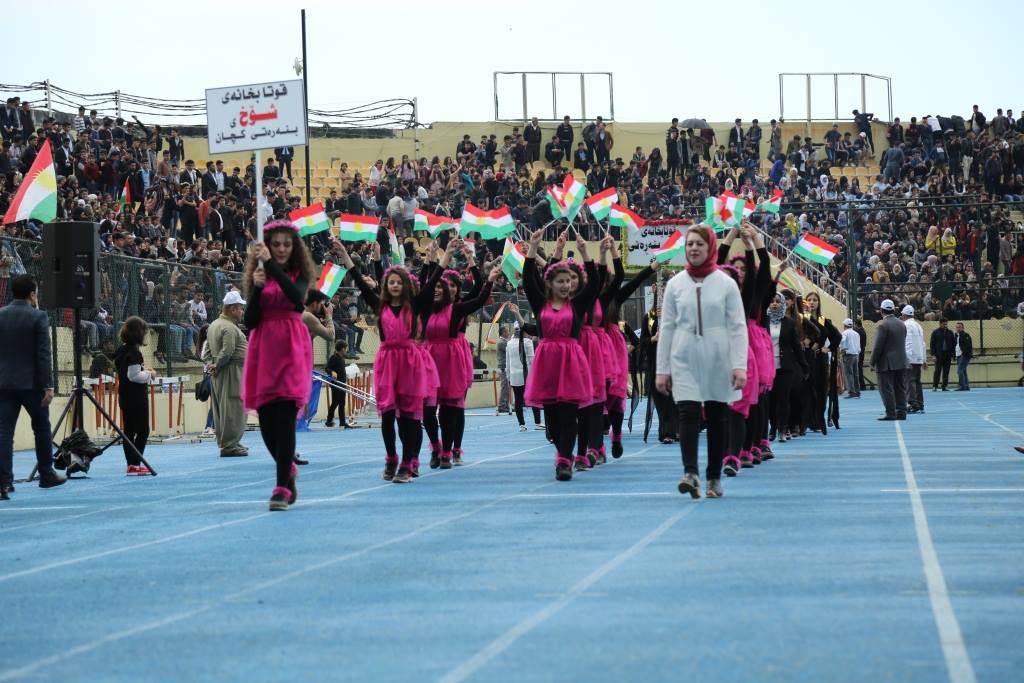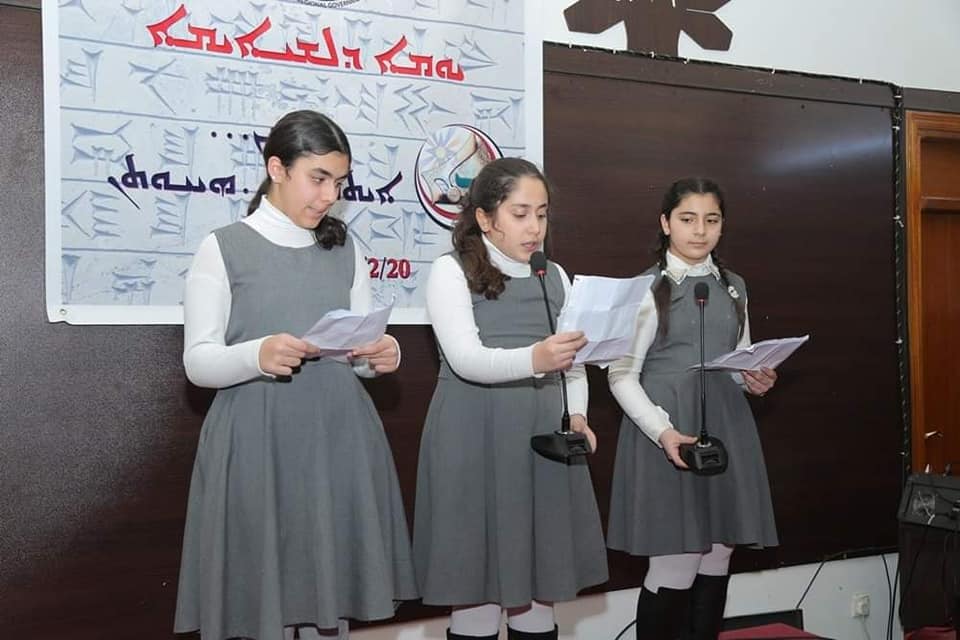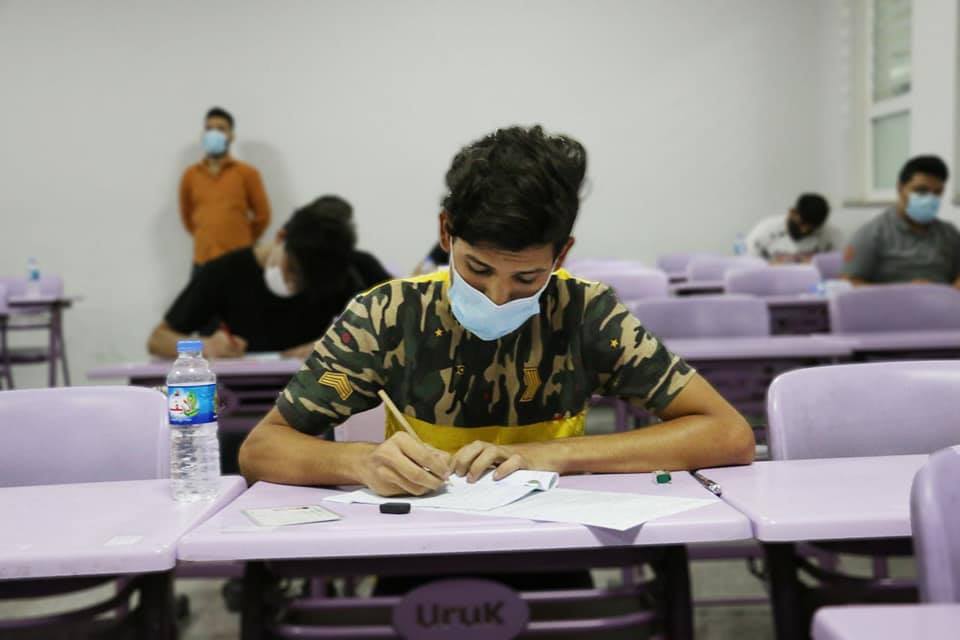“Buy me an iPad and don’t worry, I will learn good at home,” the 9-year-old Vina keeps telling her parents since she has been hearing their discussions about the Kurdistan Regional Government’s (KRG) decision for schools to give online classes as preventive measure against the COVID-19 outbreak.
Vina Herish is in the 4th grade elementary school. This school year, she will have to attend online classes from October. Unaware of her parent’s anxiety, she says “it will be very nice, we will be home all the time instead of going to school.”
Her parents don’t have any details about how the online classes will be held, and anxiously await further explanation from the Kurdistan Regional Government.
“Both of us are government employees, a 9-year-old child needs supervision when using the internet. She can’t use a lot of things anyway; someone will have to help her learn,” said Srwa Kamal, Vina’s mother, and continued: “My husband and I will be at work, who will be supervising Vina at home? How can we leave a child alone at home?”
This is an issue for most families with children. Except for 12th graders, all schools will have to hold classes online by the government decree.

Bakhtiyar Muhammad, who is in his 60s, has four daughters. Two of them are in the 10th and 11th grades.
I can’t buy them iPads and computers; where should I get the money from?
“Look, I can’t buy them iPads and computers; where should I get the money from? If I had money, I would switch my car, which I use as a taxi.” Bakhtiyar’s taxi is an Opel from 1995; its air conditioning doesn’t work, and “its engine is too big and consumes a lot of fuel.”
Bakhtiyar says that on a good day, he makes 15,000 Dinars (about $12.60). The family lives in a rented house.
The online classes are not the only issue that hampers education in the Kurdistan Region: for years, the KRG has been failing to pay teachers their salaries in full and on time, leading to teachers boycotting most of the 2019-2020 school year.
According to KRG statistics, every year in the Kurdistan Region, more than 30,000 quit going to school, and 10,000 12th grade graduates do not make it to college.
The complication of online classes
Vina’s parents anxiously contemplate the challenges: buying a computer for Vina, providing an internet connection and continuous electricity feed, and providing supervision.
It is even harder for families with more than one child. According to an owner of a shop selling electronic devices, a good tablet that a student can use costs $300.
In the winter months, the electricity feed of the national grid is reduced. On most days, there is no feed from 8:00 to 13:00 (the hours schools hold classes).
Another issue is that elementary school pupils don’t have the necessary skills to use the internet.
Internet users don’t exceed 50% to 55% [of the total population]
Karwan Raza, an official at KRG Ministry of Transport and Communications, tol KirkukNow: “Internet users don’t exceed 50% to 55% [of the total population]. Because the population of Kurdistan [Region] is 5 million; two million live in isolated [rural] areas. Others in the urban areas don’t have internet connection, or they are too young or too old.”
Ahmad Karkuki, a leadership member of Teachers Union, told KirkukNow: “Before the decision by the Council of Ministers [to let schools hold online classes], we sent a report to the Ministry, in which we say that online education will not be successful because no preparations have been done in terms of the availability of computers and internet connection. Most teachers don’t the skills to use computers and internet, let alone the students.”

Hawraman Qani’, an expert on education, said: “The positive side of online education is that today is the internet and digital era, communication technologies have penetrated all aspects of life.
Learning how to use these technologies at a young age is a good opportunity.”
Online [education] can never replace that social sphere
Being cut off from social interaction between teachers and students is one of the negative sides of online education, says Hawraman, and added that it lacks social development for students. “Online [education] can never replace that social sphere.”
Bakhtiyar Muhamamad (the taxi driver), has recently bought second hand mobile phones for his daughters, but he has to buy them tablets too. “Each iPad costs as much as my house rent.”
Neither teachers, nor students and their families know how the online education will be. This, while in two weeks the school year will start. The KRG Ministry of Education is supposedly going to announce the instructions soon.

Karwan Raza, the KRG official, says that if the final decision will be to go with online education, then the lessons must be recorded by specialist teachers and all the schools must be connected to a system.
But the Teachers Union is completely against the online education suggestion. They suggest that: classes should be limited to 15 students; all schools be changed into two shifts; classes be limited to 30 minutes; instruction about preventive measures be taught.
But schools don’t have enough space for what the Teachers Unions suggests.
There are 7,000 schools in the Kurdistan Region. According to the Teachers Union, there is currently a need for 4,000 additional schools and 50% of the existing ones need to be renovated.
700 schools don’t have drinking water; 100 schools have no buildings and exist in cabins; 90 schools have no electricity feed; 900 schools are crumbling and at the risk of collapsing; less than 20% of schools have internet connection; only 700 schools have computer classes.





